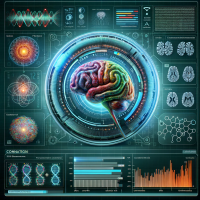AI’s Potential in Early Detection of Alzheimer’s Before Symptoms Emerge
Researchers are making significant strides in Alzheimer’s disease research using artificial intelligence (AI). Typically, diagnosing Alzheimer’s is challenging since there’s no straightforward test, and early stages often show no symptoms.

One AI method sorts through brain images, identifying those with Alzheimer’s characteristics. Another method looks at structural brain features, potentially revealing new signs of the disease. These AI tools could lead to pinpointing genes linked to Alzheimer’s when used on large databases containing medical and genetic data. This could greatly help in developing treatments and models predicting the disease’s risk.
The AI4AD consortium, started in 2020, focuses on integrating genetic, imaging, and cognitive data about Alzheimer’s. Their AI model, trained on thousands of brain scans, has been remarkably successful in identifying the disease. In one study, an AI classifier detected Alzheimer’s with over 90% accuracy.
However, the effectiveness of these AI models depends on the diversity and quality of the data they’re trained on. Currently, there’s a lack of racial and geographical diversity in the data, which might limit how broadly the findings apply.
These AI advancements are not just limited to Alzheimer’s. They have the potential to aid in understanding and treating other diseases that show physical changes in brain imaging. Integrating these AI findings with other medical data could improve disease risk assessment and allow for earlier treatment, offering new hope in the medical field, especially for those affected by Alzheimer’s and similar conditions.
References:
Lu, B. et al. Preprint at bioRxiv (2022)
Tosun, D. et al. Alzheimers Dement. (2023)
Patel, K. et al. Preprint at medRxiv (2022)